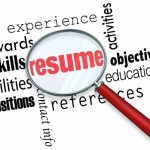
Widgetized Section
Go to Admin » Appearance » Widgets » and move Gabfire Widget: Social into that MastheadOverlay zone
Laid off or fired? You’re not alone (Part 2 of 4)
Eight experts offer advice on what to do when you’re let go
 Have you ever lost a job? I’ll bet the answer is yes. For this reason, I reached out to several experts with the hope of providing a few tips on what to do when you’re let go. What I got back was a ton of great advice. Everyone’s take was a little different. And I didn’t want to leave anything out.
Have you ever lost a job? I’ll bet the answer is yes. For this reason, I reached out to several experts with the hope of providing a few tips on what to do when you’re let go. What I got back was a ton of great advice. Everyone’s take was a little different. And I didn’t want to leave anything out.
Hence the one-off article became a four-part series covering the broad topic of ‘what to do when you’re let go.’ In part one, our eight experts answered my first question, ‘What are the first three things you should do when you are laid off or fired?‘
Part two consists of their responses to my second question, ‘What is the biggest mistake people make when they’re let go? They’re either fired or laid off. ‘ Here’s what they had to say.
Bruce A. Hurwitz, Ph.D. – President and CEO
Hurwitz Strategic Staffing, LTD.
Being bitter is the worst thing you can do. If you were laid off, recognize that it was not your fault and no one will blame you. If you were fired, consider what ‘ if anything ‘ you did wrong and what you learned from the experience.
That’s the key answer to responding to question number 3. (What’s the best answer to ‘Why did you leave your last position?’) You have to get over the bitterness because being bitter, coming across as bitter; will cost you the chance for another job. No one wants to hire someone with a grudge. You have to come across as a positive person.
Nancy B. Irwin, PsyD, C.Ht.
Speaker/Author /Psychotherapy/Clinical Hypnosis
The biggest mistake people make when they are fired is being defensive. While not pleasant, you want to use it as an opportunity to be a more responsible professional. If you don’t learn from the experience, you are doomed to repeat it.
Biggest mistake when people are laid off is taking it personally. More than likely, it is the position that is getting phased out and not you per se. Separate the two, and see what skill sets you can take on and/or enhance so that yours will be invaluable in the next situation.
Frank G. Risalvato, CPC
Certified Personnel Consultant/ Recruiting Officer
Dwelling too much on the ‘what if’s’ of their past job. They dwell on the guilt/frustrations of their previous job ‘ and it comes up in the midst of the interview as sour grapes, or insecurity or defensiveness.
Caroline Ceniza-Levine
Partner, SixFigureStart’
In a layoff, it is not personal. Don’t make the termination meeting hostile by threatening or getting angry ‘ it puts the company on the defensive when they may be feeling guilty and particularly willing to help you. Know your expected severance offer (see above) and don’t be afraid to negotiate. You don’t have to negotiate right at that first meeting. Just listen to the details and schedule another meeting when you’ve had time to process what has been said, what you want and need and how you plan to negotiate.
If you are fired, make sure you know what the company will say publically about your departure. Most companies shouldn’t give any information, except when you worked there, but you want to make sure you know your company’s specific policy. If this is a surprise, get feedback on why you were fired ‘ you want to understand the reasons so that you can better manage your career going forward and see if there is a case here to negotiate more severance.
Cheryl Heisler
Lawternatives: Career Consulting for Lawyers Exploring Alternatives
If you get defensive or angry or indignant, you run the risk of burning your bridges with your former employer and that can prove very difficult later on in your search if you are in need of a reference or other networking assistance in the field.
Richard S Deems, PhD
WorkLife Design
The biggest mistake is to pretend it didn’t happen, and not tell friends of your situation, and not ask for their help. The next ‘biggest mistake’ is to just sit at home and not venture out, or make phone calls, or do your networking, or’
Taking action is essential whether you’re fired for cause or part of a downsizing.
Jennifer Fishberg, Ed.M.
Owner, Career Karma
Venting about an ex-boss to former colleagues is a big mistake, and an easy one to make if you haven’t left on good terms. Most folks know enough not to bad-mouth a former employer during an interview — that’s common sense — but it’s easy to slip into this behavior in a seemingly social situation with ex-coworkers. You never know when you might need a reference or where a job might open up — don’t assume people don’t talk to each other.
Charles Purdy
Senior Editor, Monster+HotJobs
The biggest mistake people make is letting their emotions squash their professionalism. This is where long-term damage to a career can be done. Of course, the emotions are human: anger, sadness, panic. But keeping them in check is very important. Don’t trash your former employer on Facebook or Twitter (or on your blog), don’t make an angry exit from the company, and don’t act in panic’that is, by emailing everyone you know in desperation, saying you ‘need a job, any job.’







You must be logged in to post a comment Login